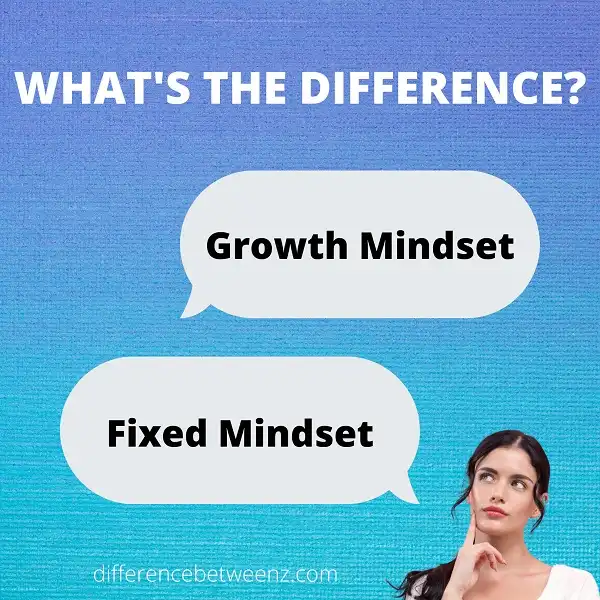In order to be successful, it is important to have the right mindset. There are two main mindsets that people typically fall into: the growth mindset and the fixed mindset. Though both mindsets have their benefits, there are some key differences between them.
What is Growth Mindset?
Growth mindset is the belief that intelligence and abilities can be developed through hard work, good strategies, and continual learning. This belief contrasts with a fixed mindset, which assumes that intelligence and abilities are static traits that cannot be significantly improved.
- People with a growth mindset tend to approach challenges with a positive attitude and view failure as an opportunity to learn and grow. They also tend to persevere in the face of setbacks and persist in the face of difficulty.
- Individuals with a fixed mindset, on the other hand, often give up easily in the face of adversity and may see failure as a reflection of their lack of ability.
- The concept of growth mindset was first proposed by psychologist Carol Dweck in her book “Mindset: The New Psychology of Success.” Since then, research has shown that people with a growth mindset tend to perform better academically and professionally than those with a fixed mindset.
What is a Fixed Mindset?
A fixed mindset is the belief that our capabilities are predetermined and unchangeable. This way of thinking leads us to believe that talent and intelligence are static traits that cannot be developed.
- People with a fixed mindset often shy away from challenges, fearing that they will expose their lack of ability. They also tend to give up easily, as they see effort as pointless if they are not naturally gifted. This can lead to a self-fulfilling prophecy, as people with a fixed mindset often do not achieve their full potential.
- In contrast, a growth mindset is a belief that our abilities can be developed through effort and practice. This way of thinking leads us to see challenges as opportunities to learn and grow.
- People with a growth mindset view failure as part of the learning process, and they are more likely to persevere in the face of adversity. Research has shown that people with a growth mindset are more likely to achieve success in school, work, and life. Consequently, it is important to develop a growth mindset in order to reach our full potential.
Difference between Growth Mindset and Fixed Mindset
- People with a growth mindset believe that their abilities and intelligence can be developed through effort, good teaching, and persistence. People with a fixed mindset believe that their abilities and intelligence are carved in stone and cannot be changed.
- Researchers have found that people with a growth mindset are more likely to take risks, persevere in the face of setbacks, and feel confident in their ability to learn new things.
- They also tend to experience less anxiety and stress than those with a fixed mindset. While people with a fixed mindset may achieve success in the short-term, they are less likely to maintain that success over the long-term. This is because they are more likely to give up in the face of difficulty and are less open to feedback that could help them improve. Ultimately, the growth mindset is more adaptive and leads to greater success both personally and professionally.
Conclusion
Fixed mindset people believe that their basic qualities, like intelligence or talent, are fixed and cannot be changed. They spend their time trying to prove themselves over and over again.
- Growth mindset people believe that their basic qualities can be developed through effort and practice. They see failure as a chance to learn something new.
- The brain is plasticity which means it can change its structure and function based on experience. This is called neuroplasticity.
- Mindsets are contagious. If you have a growth mindset teacher, classmates or colleagues will start to adopt the same growth mindset.
- Fixed mindsets tend to achieve less than those with growth mindsets because they don’t take on challenges easily and give up quickly.


